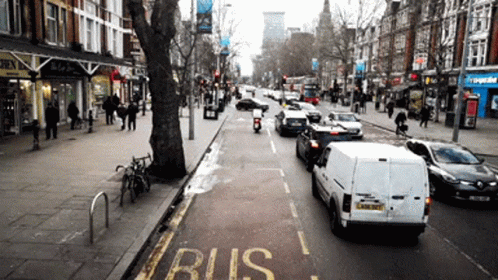Revitalizing Retail: Sustainability on Oxford Street and What It Means for the Future

The unfolding drama concerning Marks & Spencer's iconic Oxford Street store, "The Arch," invites us to explore the intersecting crossroads of sustainability, heritage conservation, corporate strategy, and legal implications. In essence, it's the classic contest of 'preserve' versus 'progress' with significant repercussions on the future of retail and the built environment.
Marks & Spencer, a British retail behemoth, faces a wave of backlash from the formidable advocacy group, SAVE Britain's Heritage. M&S has charted a bold course, opting to demolish the historic store, with the ambition to erect a more sustainable edifice in its place. The underlying philosophy guiding this decision is rooted in the 'circular economy' approach. Here, M&S commits to recovering, recycling, or reusing 95% of the current materials. The prospective new structure is anticipated to use less than a quarter of the energy of the old building. The company predicts a 'carbon payback' within 11 years, which is the length of time the new, energy-efficient building would take to offset the carbon emissions caused by its construction.

In sharp opposition, SAVE advocates for the preservation of the historic building. They argue that renovating the existing structure could confer comparable environmental benefits without the immediate 'upfront emissions' associated with the demolition. Here, the 'upfront emissions' refer to the immediate carbon footprint resulting from construction or demolition activities.
In this multifaceted contest, the potential impacts and opportunities for a corporate lawyer are manifold:
- Navigating Legal and Regulatory Hurdles: The case epitomizes the legal challenges that corporations face when spearheading sustainability initiatives. Corporate lawyers, equipped with expert knowledge of environmental regulations and planning permissions, can guide their clients through this complex landscape. This situation also underlines the potential growth area for legal professionals specializing in sustainable development and conservation laws.
- Crafting and Negotiating Construction Contracts: The ongoing debate around refurbishment versus demolition could potentially spur a cascade of new construction contracts. Skilled corporate lawyers, adept at contract drafting and negotiation, will be at the forefront of these proceedings. This indicates another significant avenue for revenue generation for law firms.
- Expertise in Dispute Resolution: The contentious nature of such initiatives invariably paves the way for disputes among various stakeholders - corporations, conservation bodies, and governmental agencies. Lawyers with a niche in dispute resolution, especially within environmental and planning law spheres, might witness an escalation in demand for their specialized skills.
Approaching these potential revenue streams requires a delicate balance of legal prowess and ethical considerations. Businesses are increasingly recognizing their social footprint, and their legal counsel must echo this sentiment through their professional practice.
From an undergraduate student's perspective, seeking to exhibit commercial awareness during an interview, this article serves as a potent example:
- Comprehending the Central Debate: Begin by elucidating the contentious issue at the heart of the M&S Oxford Street store controversy. Demonstrate your grasp of the proposed 'circular economy' strategy and the concept of 'carbon payback', while contrasting the differing perspectives of M&S and SAVE.
- Unpacking Corporate Sustainability: Discuss how corporations, like M&S, are weaving sustainability into their corporate strategies. Emphasize the role of legal and regulatory compliance in sculpting these strategies, showcasing your understanding of the interplay between business and law.
- Identifying Industry-wide Repercussions: Highlight the broader implications of this controversy on the construction industry. Discuss how such precedents could influence future decisions about refurbishment versus demolition across the sector.
- Understanding Corporate Social Responsibility (CSR): Talk about the mounting importance of CSR in today's corporate landscape. Illustrate how public scrutiny and corporate ethics are increasingly swaying business decisions.
- Recognizing Legal Opportunities: Point out how such complexities can create opportunities for legal professionals, from offering compliance guidance to managing contract negotiations and handling dispute resolution.
This unfolding controversy surrounding M&S's Oxford Street store is a microcosm of the broader debate straddling sustainability and heritage conservation. Unpacking this saga offers future professionals invaluable insights into the evolving dynamics of corporate strategy, sustainability, and the intertwined legal challenges and opportunities that follow suit. This understanding not only enriches their commercial awareness but also equips them to effectively navigate similar predicaments in their future careers.
